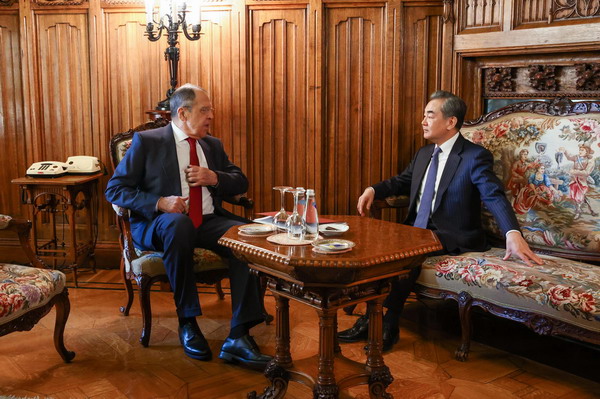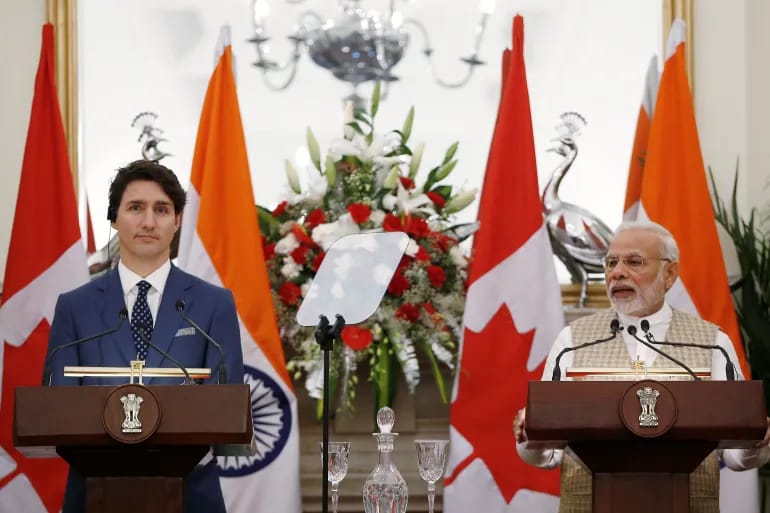China’s Foreign Minister Wang Yi engaged in crucial talks with his Russian counterpart, Sergey Lavrov, in Moscow. The discussions centered on the strengthening of strategic cooperation between the two nations and their shared commitment to a “multipolar world” and a “more just world order.” As China and Russia, both major global powers and permanent members of the UN Security Council, come together, their meeting assumes added significance against the backdrop of strained relations with Western nations over issues ranging from the Ukraine conflict to the militarization of the Pacific.
Wang Yi and Sergey Lavrov Emphasize Commitment to a ‘Multipolar World’
During the talks, Wang Yi and Sergey Lavrov underlined their dedication to a “multipolar world,” emphasizing the need for a global order that respects the interests of multiple nations. Wang affirmed, “China and Russia, as leading global powers and permanent members of the UN Security Council, bear special responsibility for maintaining global strategic stability and global development.” This commitment reflects the shared perspective that the world should not be dominated by a single superpower, marking a pivotal moment in their evolving partnership.
Russia-China Cooperation Not Targeted at Any Country, Say Officials
Lavrov, the Russian foreign minister, made it clear that the deepening cooperation between Russia and China is not aimed at any particular nation. He stressed the importance of their collaboration in promoting justice in global affairs and achieving a balance of interests across various domains. Lavrov went on to highlight that Russia and China are set to coordinate their efforts at the United Nations General Assembly and other international forums, demonstrating their united front on critical global issues.
Both nations’ leaders, President Xi Jinping of China and President Vladimir Putin of Russia, have pledged to fortify bilateral ties in the face of criticism from the West for China’s reluctance to condemn Russia’s invasion of Ukraine in February 2022. China has urged the West to consider Russia’s security concerns about NATO expansion while refraining from taking sides in the conflict. This stance underscores the delicate balance China maintains in international relations.
High-Level Diplomacy Paves the Way for Biden-Xi Meeting
Wang’s diplomatic visit to Moscow follows recent discussions with Jake Sullivan, the National Security Adviser to United States President Joe Biden, in Malta. The talks between Wang and Sullivan, which spanned 12 hours, were described as “candid, substantive, and constructive” by both sides. This flurry of high-level exchanges between China and the United States suggests a concerted effort to build a productive relationship, with the groundwork being laid for a potential meeting between Presidents Biden and Xi later this year.
Ryan Hass, a China expert at the Brookings Institution, noted that these diplomatic engagements indicate a purposeful approach to enhancing the relationship between Washington and Beijing. He expressed his expectation that both sides are actively working to ensure a productive meeting between the two leaders in November. Face-to-face diplomacy is being considered the most effective way to address disagreements and explore areas of cooperation, especially on issues of global and regional security.
In a similar vein, US Secretary of State Antony Blinken held discussions with China’s Vice President Han Zheng, addressing topics such as the Ukraine war and the Taiwan Strait. Blinken emphasized the world’s expectations for responsible management of the US-China relationship, reaffirming the United States’ commitment to this objective.
Wang Yi’s visit to Moscow also coincides with North Korean leader Kim Jong Un’s departure from Russia, following his six-day visit that included discussions with President Vladimir Putin. This visit raised concerns in Western nations about the potential for an arms alliance that could bolster Russia’s capabilities in the ongoing conflict in Ukraine. The international community closely watches these diplomatic maneuvers as they reshape the global balance of power and influence.
















